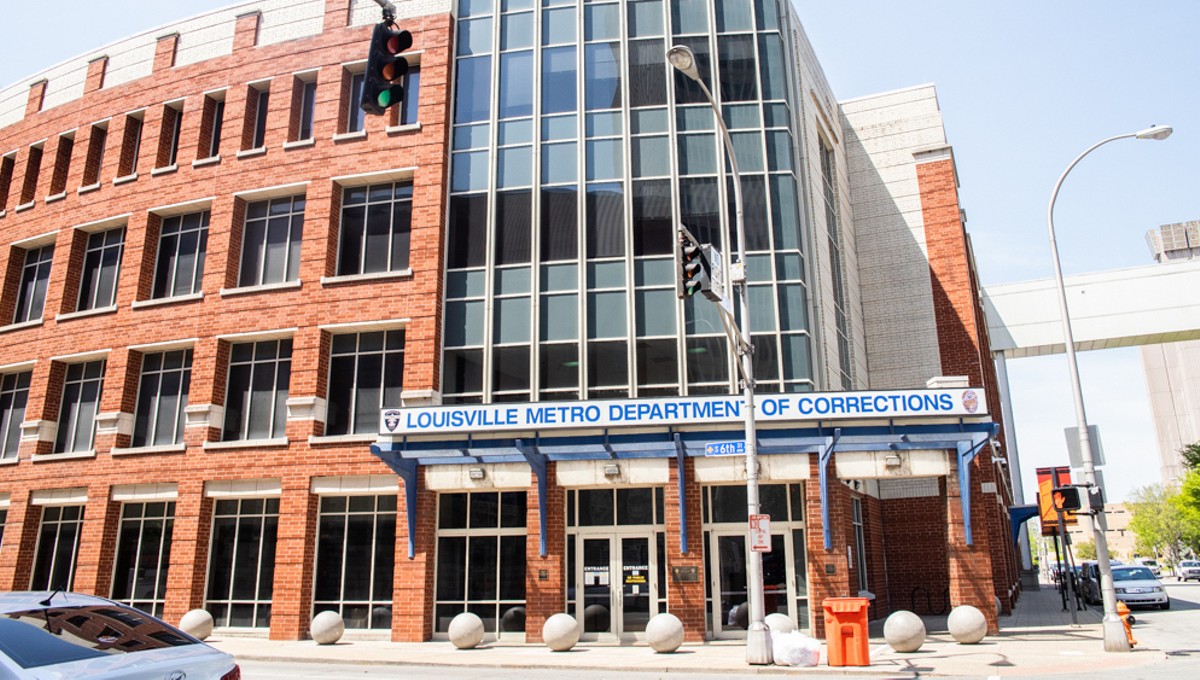Entrepreneurs: Are you looking for a way to start a business that helps marginalized people, thereby lending direction to your purposeless, empty life? I have a billion-dollar [1] idea that you can have for free. First, some background. If you’re familiar with criminal justice problems in the region or if you’re pressed for time, you can skip past the numbered list.
1. The jails around here are bad.
Other LEO writers and I have covered this extensively, so I don’t see reason to spill more ink on it here. If you still need convincing, read the rest of this issue.
2. The problems are bigger and badder than you think.
For every horrible death you hear about, there are at least a million constitutional violations that happen at jails and prisons all over the region. Incarcerated people are denied medications, beaten up by guards, tossed into solitary confinement for months at a time, deprived of bedding and basic hygiene items, and generally subjected to what anyone who knows international human rights standards would call “torture” all day, every day. Most of this stuff is so common as to be considered unnewsworthy. Even run-of-the-mill deaths can go unnoticed, especially in rural areas where there are few reporters, attorneys or other outsiders with access to prisoners.
3. The courts could make things less bad.
We have been taught that a lawsuit should be the standard response to violations of one’s civil and constitutional rights for about seven decades in America. For purposes of this article, let’s assume this is still true. Yes, the federal courts are mostly populated with psychopaths, and the current Supreme Court is like a council of spider-demons from a Neil Gaiman book. But Louisville is about to seat some of the most forward-thinking state-court judges in the country; judges who understand the plight of incarcerated people, or who at least possess a modicum of compassion. Many other metropolitan areas are seeing similar shakeups. There’s still a pathway through the courts, however narrow, to something resembling justice.
4. There aren’t enough lawyers to handle all this badness.
Assuming that the courts are willing and able to fix things a bit, there’s still the question of how a case might get to a judge in the first place. There are only so many hours in a day, and the few self-employed lawyers who represent incarcerated people need to make enough dough to pay their overhead and eat. The amount of money won at trial for, say, a garden-variety jail beatdown is usually not enough to justify the time and expense spent litigating said beatdown in court for a year or two. As such, private attorneys can only afford to take the worst of the worst cases: Paralyzing injuries, deaths or class actions. More than 90% of all lawsuits against jails and prisons are handled pro se (without a lawyer), and those are brought only by prisoners who have the wherewithal to file them in the first place. Federal courts know that no one will notice if they dismiss those cases quickly and quietly, so that’s usually what happens. As a result, penal institutions (and their insurance carriers) have little incentive to correct anything that doesn’t result in shocking, gruesome, newsworthy death, and most constitutional violations go totally unchecked.
This brings us to my billion-dollar [2] idea. Presently, I know of no nonprofit between here and Chicago that both 1) focuses on criminal justice issues and 2) has an advocacy arm (that is to say, it employs its own salaried lawyers). You should start one.
Such organizations exist in just about every other region in the country. Prisoners’ Legal Services of New York, for example, has five chapters throughout the state, and there are umpteen orgs based in the nation’s capital. California has a few options, including Prison Law Office and For the People. Washington has Columbia Legal Services. In the South, you’ve got the Florida Justice Institute, North Carolina Prisoner Legal Services, and others. These nonprofits do great work, but there’s nothing like them within a 100-mile radius of Louisville. Public defenders don’t do civil cases, Legal Aid doesn’t handle criminal justice issues, and most other nonprofits rely on volunteer legal help from private lawyers. The closest thing we’ve got are the state ACLU chapters, and they’re busy dealing with the incessant, screeching madness emanating from Frankfort and Indianapolis.
Too often, we hear about a social problem and think, “That’s terrible, but at least someone is taking care of that.” We are usually wrong, especially when it comes to the rights of incarcerated people. Of the tens of thousands of bodies crammed into more than 200 facilities in Indiana and Kentucky, only those few who can get the attention of a private lawyer have any shot at getting help or vindication, even if they’ve been subjected to unspeakable horrors. A dedicated nonprofit organization wouldn’t correct this problem, of course, but it would help. A small team of salaried attorneys can litigate the cases the private bar can’t afford to take. Over time, they’d be able to identify patterns that news crews don’t see. And they can hit the same institution over and over until its warden/director/insurer decides that the price of settling multiple cases might be more costly than addressing the underlying problem.
So there you have it. A couple of grants, a partnership with a law school, maybe a little [3] startup cash, and you’ve got yourself a brand-new, billion-dollar [4] nonprofit along with a new raison d’être. When you’ve got enough of a budget to hire an outrageously overpriced consultant, I hope you’ll think of me. •
[1] Spoiler: This article is about starting a nonprofit. You will not make a billion dollars from this idea. But you’ll feel like a billion dollars if you do it! [2] See n.1, supra. [3] By “a little” I mean “a lot.” It would take a lot. [4] Again, see n.1, supra.
Keep Louisville interesting and support LEO Weekly by subscribing to our newsletter here. In return, you’ll receive news with an edge and the latest on where to eat, drink and hang out in Derby City.






